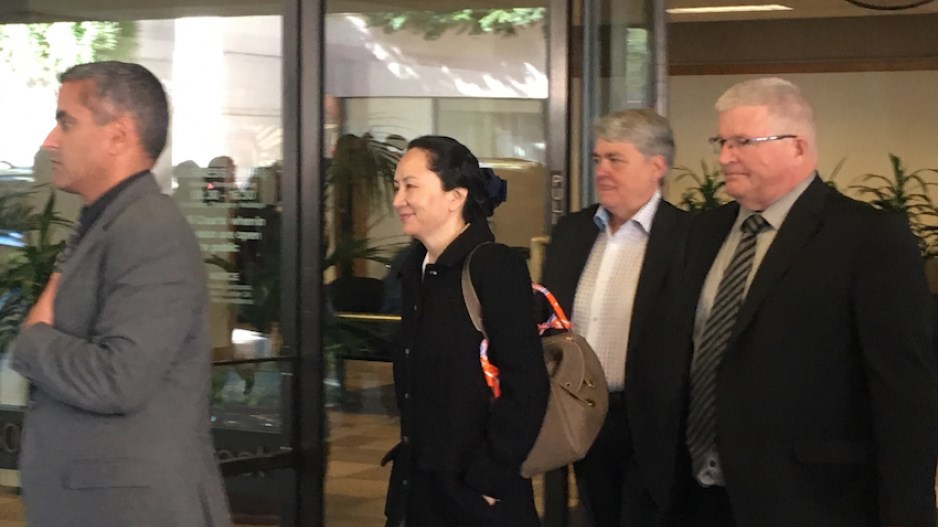The latest round of the Meng Wanzhou extradition hearings wrapped up this morning with associate chief justice Heather Holmes reserving judgment on whether to grant the Huawei executive’s application to get more information disclosure from U.S. and Canadian authorities on her arrest in 2018.
The third day of arguments on the issue lasted less than an hour, with defence lawyers outlining its response to Crown attorney Robert Frater’s dismissal of Meng’s claims in calling the new information the Huawei CFO is trying to introduce as “irrelevant” and “inadmissible” in an extradition process.
Defence lawyer Frank Addario told Holmes that Frater’s statements – about extradition hearings in Canada overwhelmingly favouring committal and against the person being extradited, and that the overwhelming majority of material admission applications in these cases are rejected – should not inform how the judge approach applications in the Meng case because it “is not a garden-variety case.”
Addario again hammered on the points emphasized by fellow defence lawyer Scott Fenton earlier this week – that the U.S. record of the case (ROC, a collection of facts of the allegations against Meng in the U.S. criminal charges) is fundamentally flawed and brings into doubt the trustworthiness of information given voluntarily from the arresting U.S./Canadian authorities.
“We are saying that what the United States did include [in the record of the case] is fundamentally inaccurate, and what the United States did omit was central to the deception of what the requesting state [the U.S.] alleged the applicant [Meng] did commit,” Addario said, adding that Holmes’ role – while limited to judging the requirements for extradition and not to areas of an actual trial on Meng’s actions – does include some coverage into related issues due to the topic being discussed.
“I recognize the extradition process is heavily tilted in favour of committal, and many persons sought lose their hearings in part because it’s no harder than getting a committal for trial after preliminary hearings. But at least as far as the abuse-of-process hearing is involved, there will be a hearing on this issue. And your [Holmes’] role as guardian of the court is not limited in the same way as it is in the extradition hearing.”
Addario then went back to the point that – regardless of what Frater said about Meng’s 2013 powerpoint presentation to HSBC being deceptive about business dealings in Iran in order to maintain a banking relationship – the fact that Meng outlined clearly Huawei’s role in Iran means there can be no causality on Meng for HSBC’s dealings with Huawei and the bank processing Huawei’s proceeds in Iran through the U.S. banking system.
“Mr. Frater said this was blaming the victim [of fraud, HSBC] in raising a defence [for Meng],” Addario said. “I see it slightly differently, not surprisingly... Is a customer responsible for a decision made down the road by a bank a year after full disclosure that Huawei was operating in Iran? We know that the bank was not forced to denominate money in U.S. dollars through its U.S. subsidiary. It had a risk-free option.”
The next court hearing date for the Meng case is scheduled for Oct. 26.




